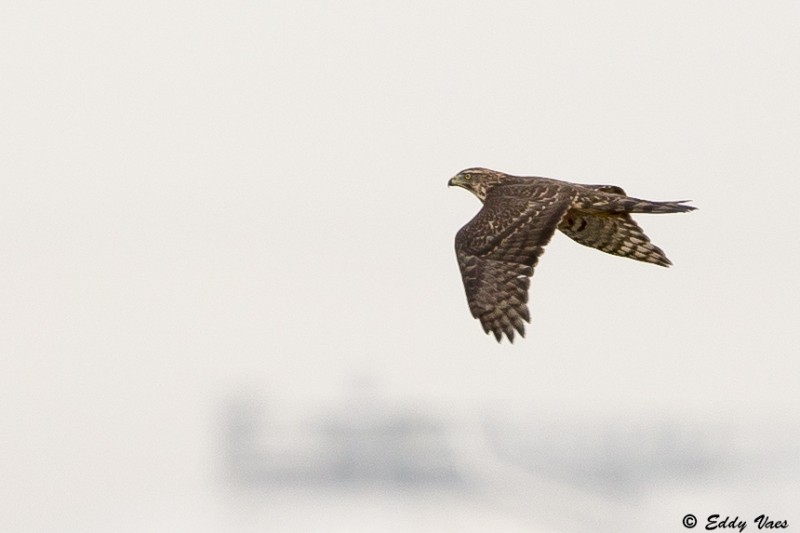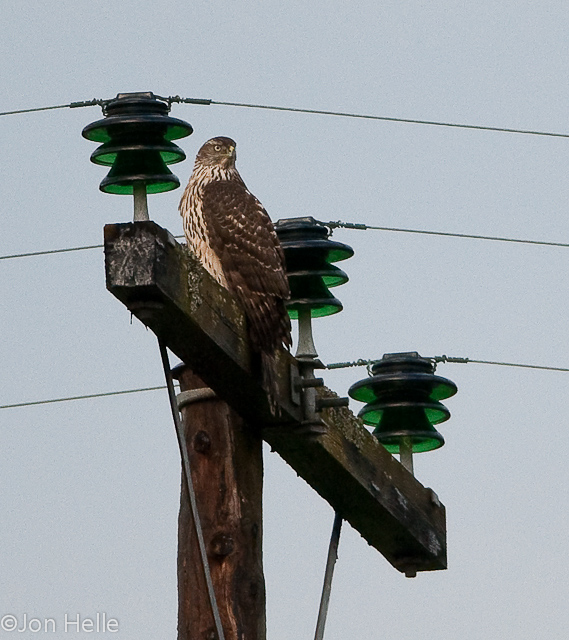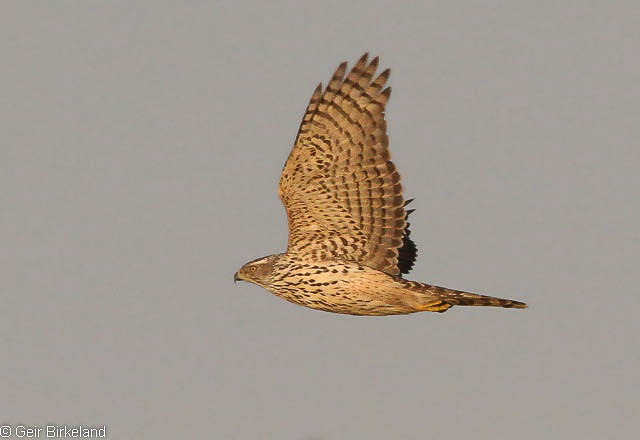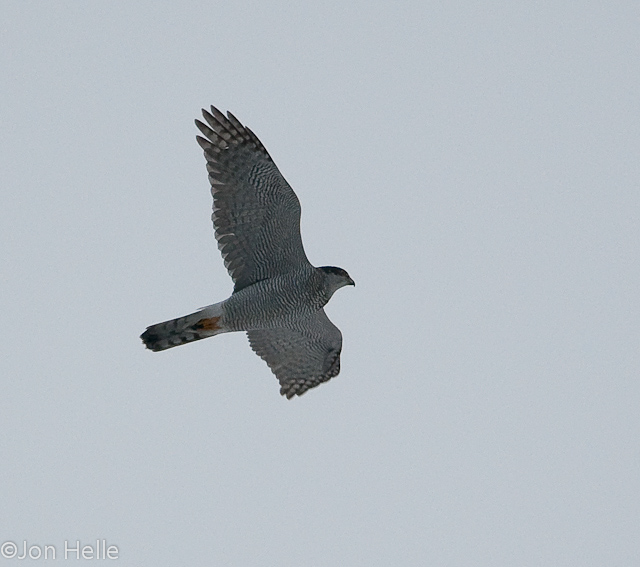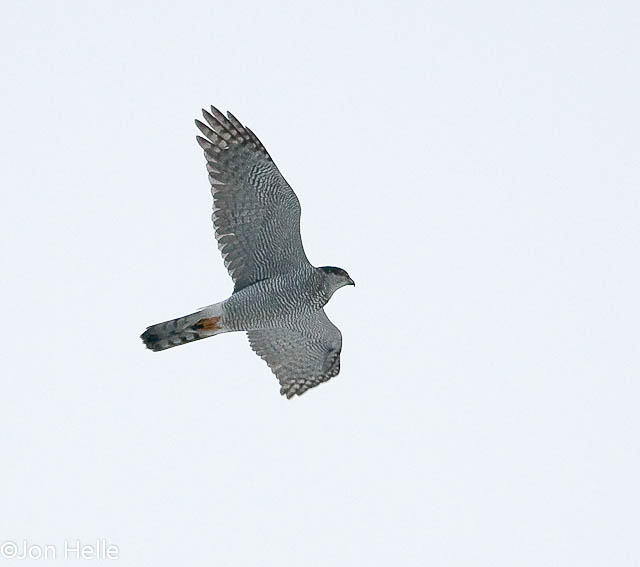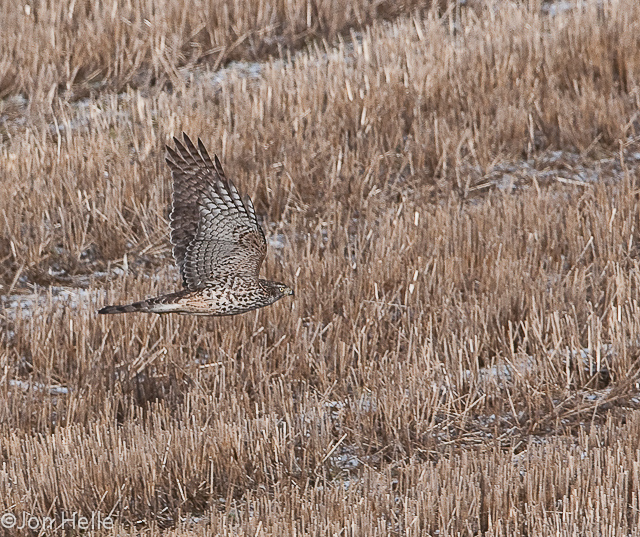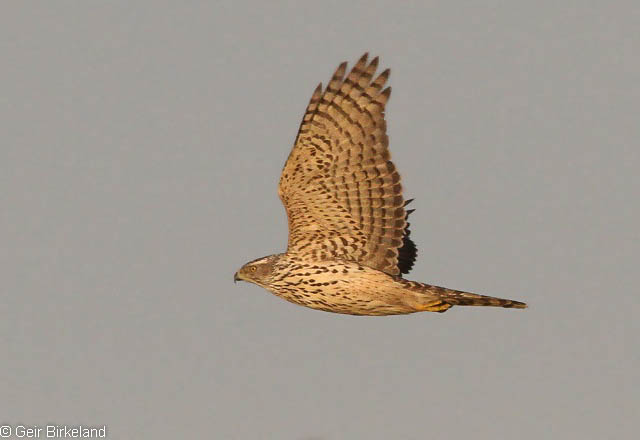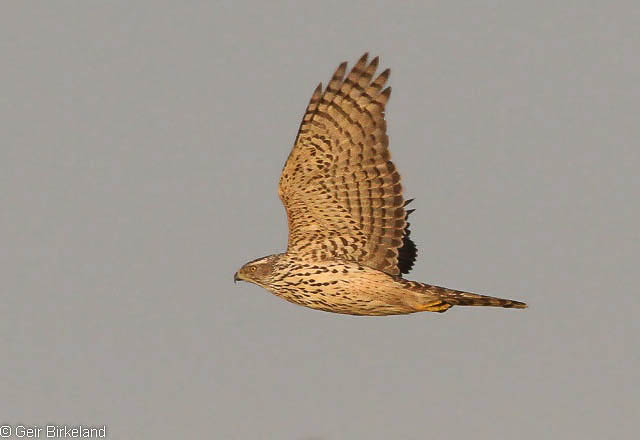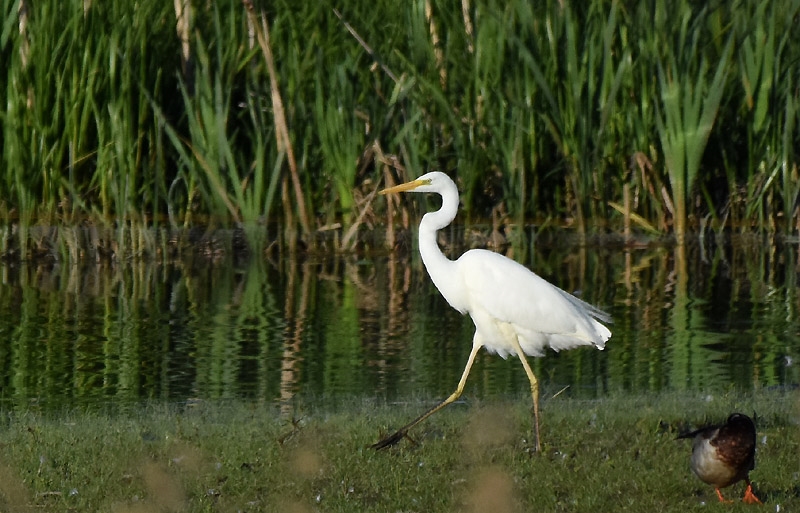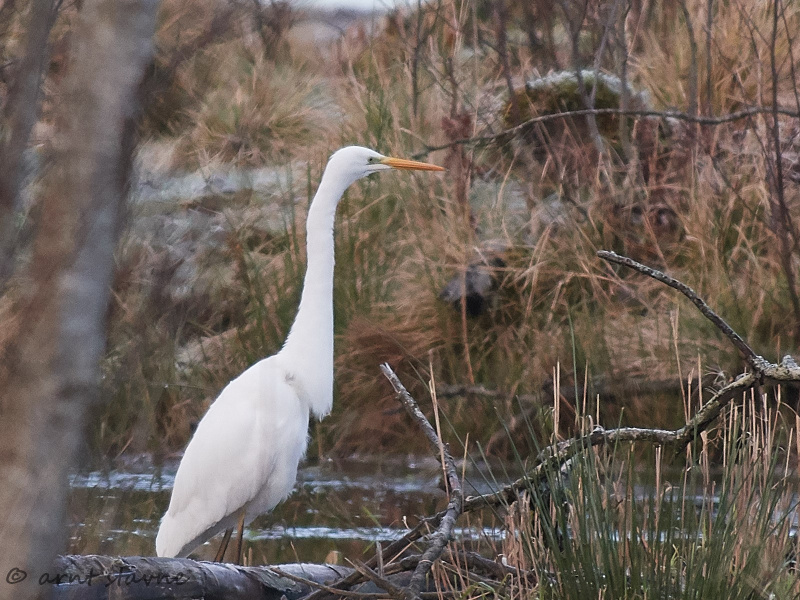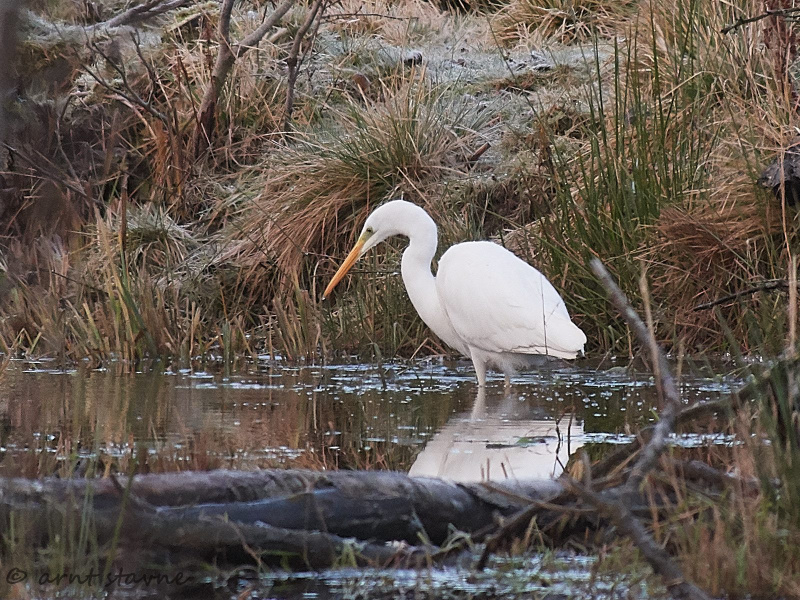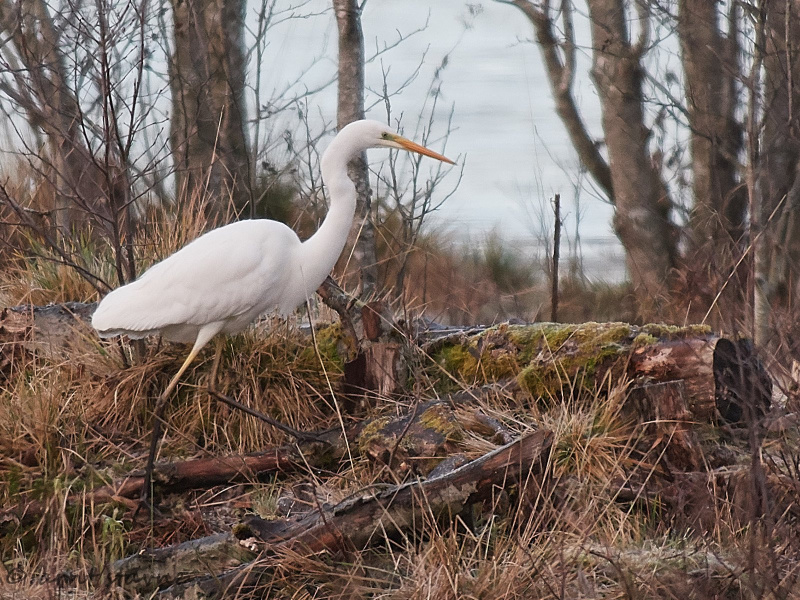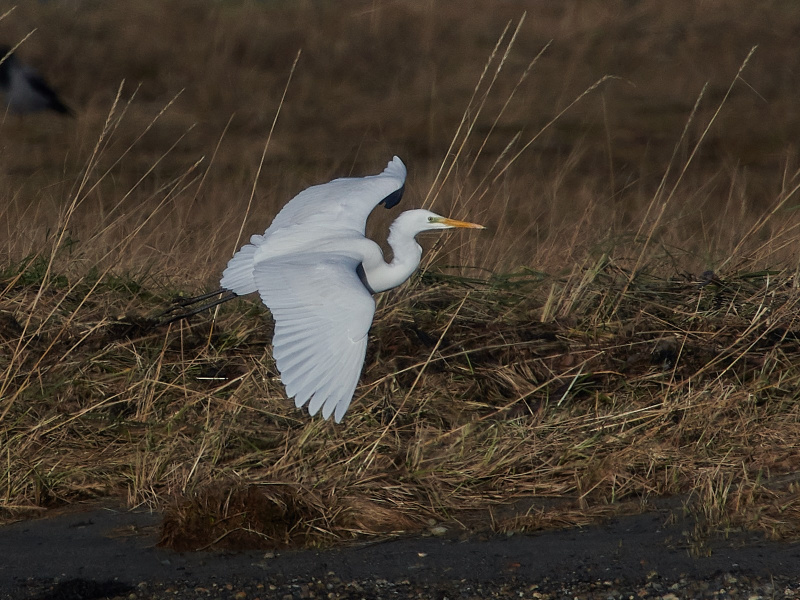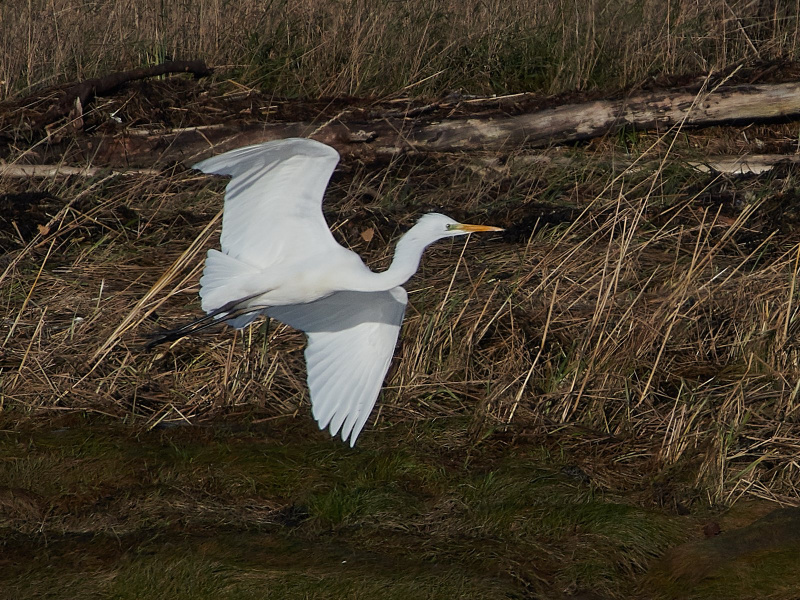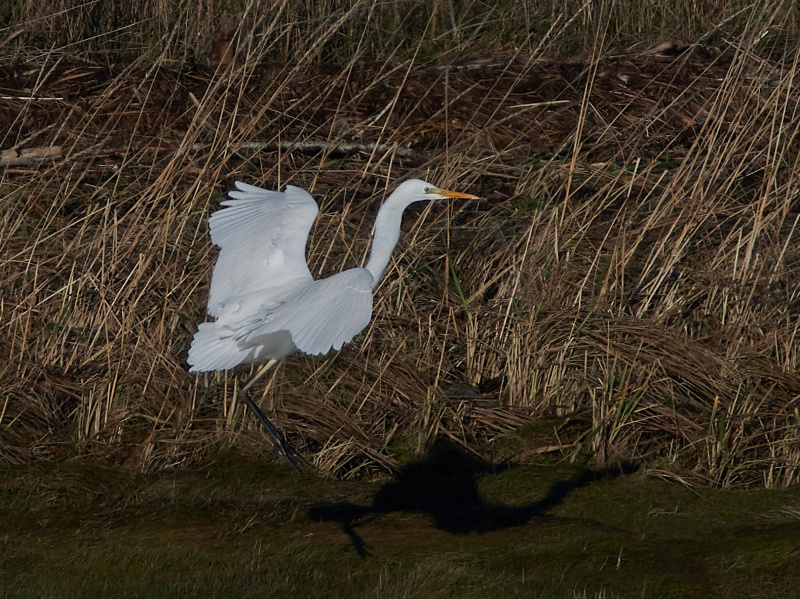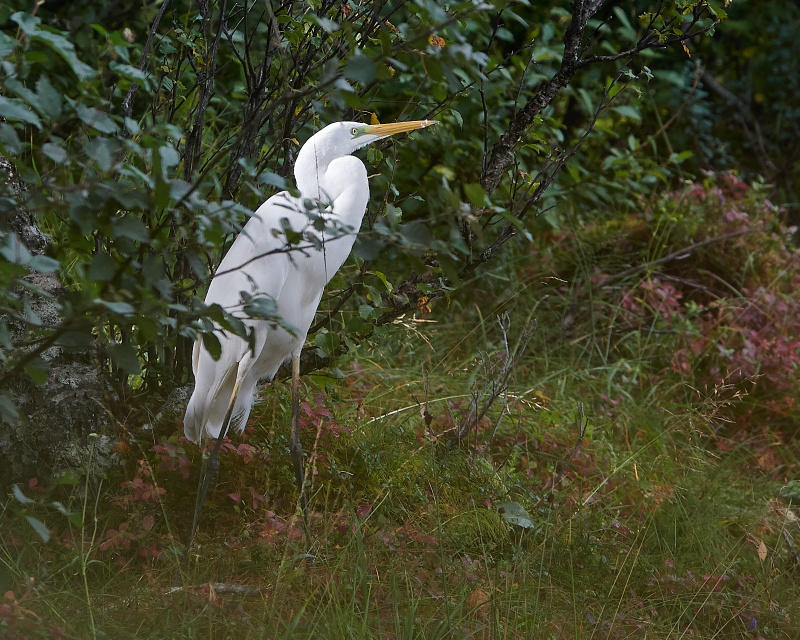Goshawk (Accipiter gentilis)
Great Egret (Ardea alba)
Bulky raptor with long tail and short, rounded wings. Small males may be difficult to separate from large Sparrowhawk females. Upperparts grey-brown, and underparts pale and barred or speckled. Male and female quite similar, but female larger. Juveniles browner than adults, with heavily speckled underparts. Supercilium prominent in both sexes. Bulkier belly and broader at base of tail than Sparrowhawk. Deep chest. Longer wings and longer secondaries gives more of a S-shape to trailing edge of wings. Slightly rounded tail-corners visible when soaring. Flight alternates series of wingbeats with short glides without loosing height.
Sound:Series of short "ke-ke-ke-ke-ke". More resonant, both sharper and deeper pitched than similar call of Sparrowhawk, and much slower. Also a wailing "peeeaaaaw"
Alarm call:
Distribution:
Wikipedia: map (se also Xeno-canto below)
Ecology:Birdlife ecology
Links:
Observation.org Latest observations
Image search Flickr NB! May give other species
CCSounds:Recorded by Tomek Tumiel,http://www.xeno-canto.org ,CC license
Slender and elegant bird, about the same size as Grey Heron. Bill dark in breeding birds, otherwise yellow. Legs and feet dark, but tibia often with red tinge in breeding season. Long, S-shaped neck with sharp angle/bend. Erect posture, and less skulking, horizontal hunting behaviour than Little Egret. Almost twice the size of Little Egret, and wing-beats are considerably slower. Wings give the impression of being attached more upfront than in Little E. Feets protrude well beyond tail in flight.
Sound:Silent outside breeding ground. In colonies various harsh calls like a dry, and mechanical "kerrrrrrr", and a very nasal "geet" or "ga-geet ga-geet" are heard.
Flight call:
Distribution:
Wikipedia: map (se also Xeno-canto below)
Ecology:Birdlife ecology
Links:
Observation.org Latest observations
Image search Flickr NB! May give other species
CC
 English
English Albanian
Albanian
 Armenian
Armenian
 Bulgarian
Bulgarian
 Catalan
Catalan
 Croatian
Croatian
 Czech
Czech
 Danish
Danish
 Dutch
Dutch
 Finnish
Finnish
 French
French
 Georgian
Georgian
 German
German
 Greek
Greek
 Hungarian
Hungarian
 Italian
Italian
 Latvian
Latvian
 Lithuanian
Lithuanian
 Macedonian
Macedonian
 Norwegian
Norwegian
 Polish
Polish
 Portuguese
Portuguese
 Romanian
Romanian
 Russian
Russian
 Sami : Lule sami
Sami : Lule sami
 Sami : North sami
Sami : North sami
 Sami : South sami
Sami : South sami
 Scientific names
Scientific names
 Serbian
Serbian
 Spanish
Spanish
 Swedish
Swedish
 Ukrainian
Ukrainian


